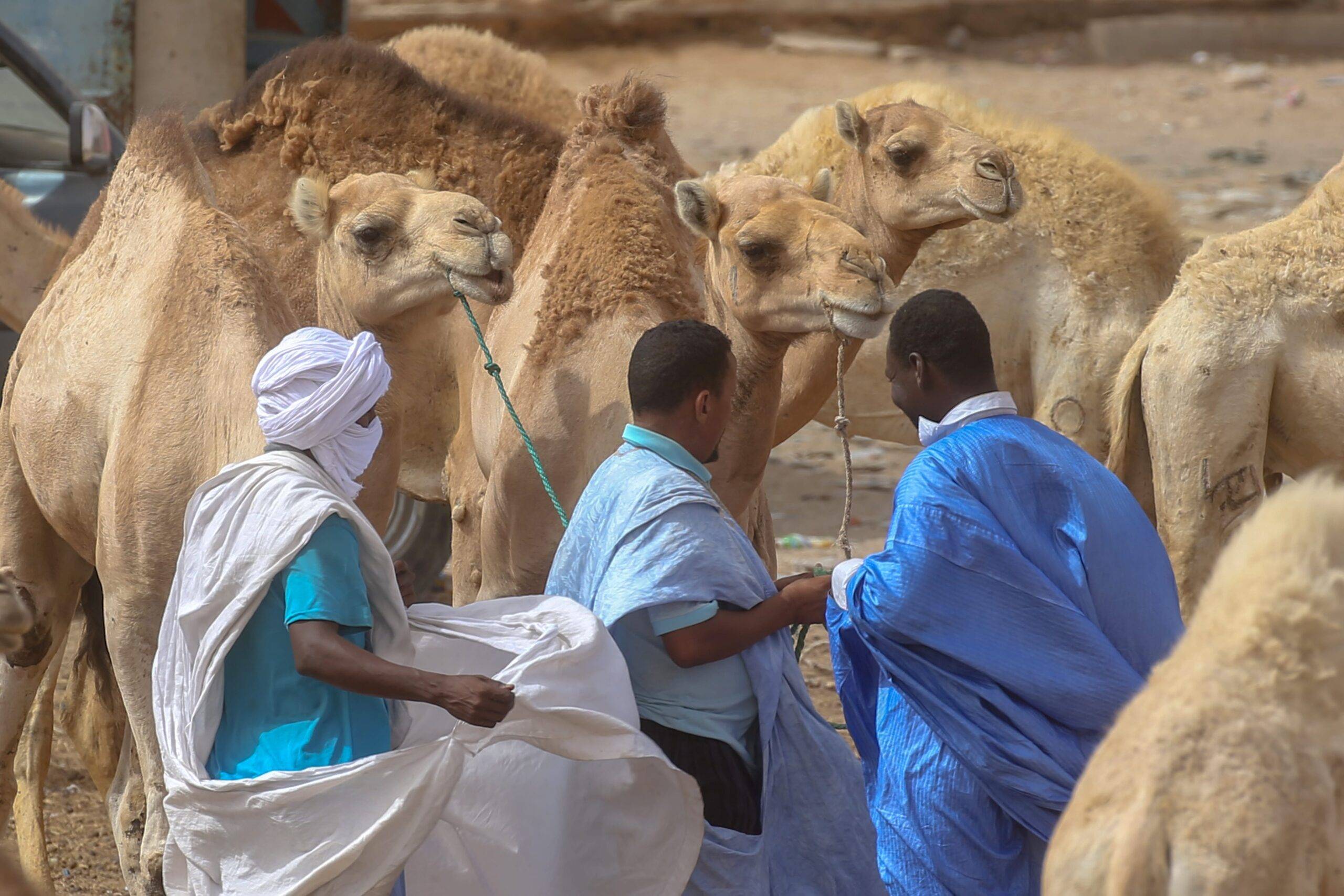What is celebrated on Eid al-Adha in Mauritania?

- Understanding Eid al-Adha: Significance and Traditions in Mauritania
- How Mauritanians Celebrate Eid al-Adha: Rituals and Customs
- The Importance of Sacrifice During Eid al-Adha in Mauritania
- Festive Foods and Feasts: Culinary Traditions of Eid al-Adha in Mauritania
- Community and Charity: The Spirit of Giving During Eid al-Adha in Mauritania
Understanding Eid al-Adha: Significance and Traditions in Mauritania
Eid al-Adha, also known as the "Festival of Sacrifice," holds profound significance for Muslims around the world, including those in Mauritania. This annual celebration commemorates the willingness of Prophet Ibrahim (Abraham) to sacrifice his son as an act of obedience to God. In Mauritania, the essence of this festival is deeply intertwined with the values of faith, family, and community. The observance of Eid al-Adha reflects the commitment of the Mauritanian people to uphold their religious beliefs and traditions.
During Eid al-Adha, the primary tradition is the ritual sacrifice of livestock, typically sheep, goats, or camels. This act symbolizes the spirit of giving and charity, as a portion of the meat is distributed to the less fortunate, ensuring that all community members can partake in the festivities. In Mauritania, families often come together to share the responsibilities of the sacrifice, fostering a sense of unity and cooperation. The distribution of meat is not only a gesture of goodwill but also a means to strengthen social bonds within neighborhoods.
The celebration of Eid al-Adha in Mauritania is marked by various cultural customs and practices. Families typically begin the day with a special prayer at the mosque, followed by the ritual sacrifice. Afterward, it is common to gather for festive meals featuring traditional dishes such as couscous and tagine, which reflect the rich culinary heritage of the country. Additionally, wearing new or best clothing is customary, symbolizing renewal and joy.
In the days leading up to Eid al-Adha, Mauritanians engage in preparations that include cleaning homes, purchasing livestock, and decorating their surroundings. This festive atmosphere is enhanced by communal gatherings, where neighbors and friends come together to celebrate, exchange greetings, and share in the joy of the occasion. Overall, Eid al-Adha in Mauritania embodies a unique blend of religious devotion, cultural identity, and community spirit, making it one of the most cherished events in the Mauritanian calendar.
How Mauritanians Celebrate Eid al-Adha: Rituals and Customs
Eid al-Adha, known as Tabaski in Mauritania, is one of the most significant religious festivals for Muslims, commemorating the willingness of Prophet Ibrahim to sacrifice his son in obedience to God. In Mauritania, this celebration is marked by a rich tapestry of rituals and customs that reflect the country’s unique cultural heritage. The festival typically begins with a special prayer at the mosque, where families gather to express gratitude and seek blessings for the year ahead.
One of the central customs of Eid al-Adha in Mauritania is the sacrifice of an animal, usually a sheep, goat, or cow. This act symbolizes sharing and generosity, as the meat is distributed among family, friends, and those in need. The sacrifice is performed after the Eid prayer, and the process is often a communal event, where families come together to share in the festivities.
Key rituals during Eid al-Adha in Mauritania include:
- Morning prayers: Families dress in their finest clothes and attend communal prayers at local mosques.
- Animal sacrifice: The chosen animal is slaughtered in accordance with Islamic law, emphasizing compassion and respect for the creature.
- Feasting: The day is filled with celebratory meals, featuring dishes made from the freshly sacrificed meat, which are often shared with neighbors and the less fortunate.
- Visiting family and friends: It is customary to visit loved ones, exchanging greetings and gifts, reinforcing community bonds.
In addition to these core rituals, the festival is also a time for cultural expression. Mauritanians often showcase traditional music and dance, adding a festive atmosphere to the celebrations. The vibrant markets are filled with colorful clothing, sweets, and decorations, making it a joyful occasion for all ages. Overall, Eid al-Adha in Mauritania is a profound expression of faith, community, and generosity, deeply rooted in the nation’s cultural fabric.
The Importance of Sacrifice During Eid al-Adha in Mauritania
Eid al-Adha, known as the "Festival of Sacrifice," holds profound significance for Muslims around the world, and in Mauritania, this occasion is particularly cherished. The act of sacrifice during this festive period symbolizes obedience to Allah and commemorates the willingness of Prophet Ibrahim (Abraham) to sacrifice his son as an act of submission to God's command. In Mauritania, this tradition is not just a religious duty; it embodies the community spirit and the values of generosity and sharing.
The sacrificial practices in Mauritania are deeply intertwined with cultural customs and religious beliefs. Families often gather to perform the Qurbani, which involves sacrificing an animal, typically a sheep, goat, or cow, in accordance with Islamic teachings. The meat is then divided into three parts: one-third is kept for the family, another third is shared with relatives and friends, and the final third is donated to those in need. This distribution highlights the importance of charity and community support, ensuring that even the less fortunate can partake in the celebrations.
Moreover, the act of sacrifice serves as a reminder of the values of humility and gratitude. During Eid al-Adha, Mauritanians reflect on their blessings and the significance of helping others. Many families use this time to strengthen bonds with relatives and friends, reinforcing social ties that are essential in Mauritanian culture. The communal prayers and festivities that accompany the sacrifice further emphasize unity and collective identity among the people.
Key aspects of the sacrifice during Eid al-Adha in Mauritania include:
- Religious Obligation: The sacrifice is a fundamental aspect of the Eid al-Adha celebration, fulfilling a significant religious duty.
- Community Engagement: The practice fosters a sense of community as families and friends come together to share the experience.
- Charitable Acts: The distribution of meat encourages generosity and support for the less fortunate, reinforcing social responsibility.
- Cultural Significance: The rituals associated with the sacrifice reflect the rich cultural heritage of Mauritania, blending Islamic teachings with local traditions.
In essence, the importance of sacrifice during Eid al-Adha in Mauritania extends beyond mere ritual; it encapsulates the essence of faith, community, and compassion that defines the Mauritanian way of life.
Festive Foods and Feasts: Culinary Traditions of Eid al-Adha in Mauritania
Eid al-Adha, known as the "Festival of Sacrifice," is one of the most significant religious celebrations in Mauritania, marked by rich culinary traditions that reflect the country’s cultural heritage. During this festive period, families come together to prepare and share a variety of traditional dishes, emphasizing communal ties and generosity. The central focus of the celebration is the sacrifice of livestock, typically sheep, goats, or camels, which plays a pivotal role in the festive meals.
Key Dishes During Eid al-Adha
The culinary offerings during Eid al-Adha are abundant and diverse, showcasing the flavors of Mauritania. Some of the most popular dishes include:
- Meat Stews: Rich and hearty stews made from freshly slaughtered meat, often slow-cooked with spices and vegetables.
- Couscous: A staple in Mauritanian cuisine, couscous is often served alongside meat dishes, topped with a flavorful sauce.
- Roasted Meat: Grilled or roasted meat is a highlight of the feast, seasoned with local spices that enhance its flavor.
- Traditional Breads: Flatbreads, such as "khobz," are commonly enjoyed, used to scoop up stews and meats.
The preparation of these dishes is often a communal effort, with family members gathering to help cook and serve the meals. It is customary to share food with neighbors and those in need, reflecting the spirit of charity that is central to Eid al-Adha. In many households, the day begins with prayers and the distribution of meat to the less fortunate, reinforcing the importance of community and compassion.
Sweet Treats and Refreshments
In addition to savory dishes, Mauritanian families often prepare an array of sweet treats to celebrate Eid al-Adha. Popular options include:
- Dates: Fresh dates are commonly served, symbolizing hospitality and sweetness.
- Baklava: This flaky pastry filled with nuts and honey adds a touch of indulgence to the festivities.
- Mint Tea: A traditional drink, mint tea is served throughout the day, offering warmth and refreshment.
These festive foods and feasts during Eid al-Adha in Mauritania not only highlight the country's rich culinary landscape but also serve as a reminder of the values of sharing, gratitude, and community spirit that are at the heart of this significant celebration.
Community and Charity: The Spirit of Giving During Eid al-Adha in Mauritania
Eid al-Adha, known as the "Festival of Sacrifice," holds profound significance in Mauritania, where the spirit of community and charity thrives. This festive occasion, which commemorates the willingness of Prophet Ibrahim to sacrifice his son in obedience to God, is marked by acts of generosity and solidarity. During this time, the act of sharing is not only encouraged but deeply ingrained in the cultural fabric of Mauritanian society.
Charitable Practices During Eid al-Adha
In Mauritania, the celebration of Eid al-Adha involves several charitable practices that reflect the values of compassion and giving. Key charitable activities include:
- Qurbani: The ritual sacrifice of livestock, such as sheep, goats, or camels, where a portion of the meat is distributed to those in need.
- Community Feasts: Families often host communal meals, inviting neighbors and the less fortunate to share in the festive spirit.
- Donation Drives: Many organizations and mosques organize drives to collect food, clothing, and money to support vulnerable populations.
These practices not only provide essential resources to those who are less fortunate but also strengthen community bonds, as families and friends come together to celebrate the values of compassion and generosity.
The Role of Local Organizations
Local organizations and charities play a vital role in facilitating acts of charity during Eid al-Adha. Many non-profit groups mobilize volunteers to ensure that the donations reach the most needy sectors of society. They coordinate the logistics of the Qurbani sacrifices, ensuring that the meat is distributed fairly and promptly. Moreover, these organizations often run awareness campaigns, educating the public about the importance of giving and the impact it has on the community.
In addition, the collective efforts of local mosques during this time foster a sense of unity and shared purpose. They serve as hubs for organizing charitable events and encouraging congregants to partake in the spirit of giving. The emphasis on charity during Eid al-Adha reinforces the importance of looking after one another, a principle that is deeply rooted in Mauritanian culture.
Leave a Reply

Other celebrations and holidays